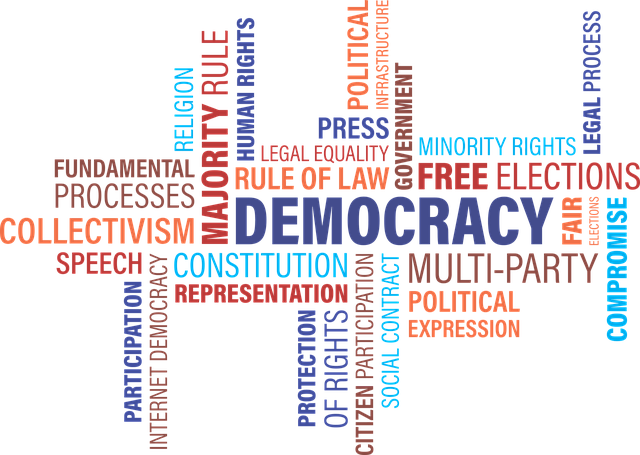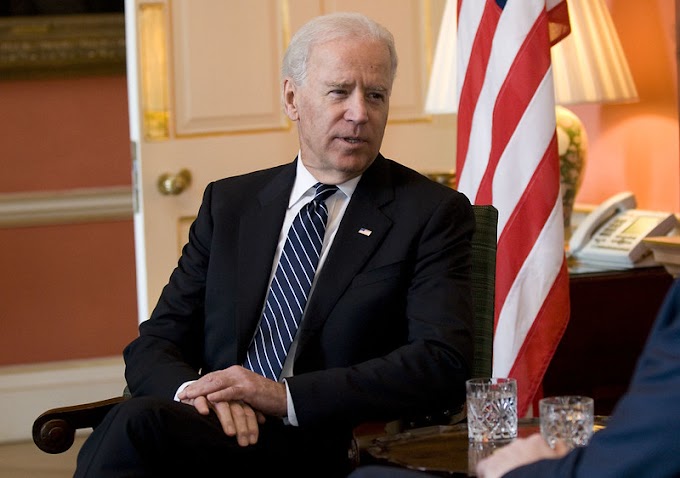Democracy around the world is a threat to Democracy
Democracies are being threatened by changing forms of dictatorships around the world. In the past, there were periods of dictatorship, but today, when we look at the planet, it seems that dictatorship is beginning to take shape.
Dictatorship is no longer what it used to be, a new concept is emerging that in some Democracies a certain class has become so strong that it influences all decisions and influences all sources of power to further its own interests. Keeps growing more. As a result, matters become more complicated and life becomes more difficult for the common man. There is a lack of real representation in democratic societies around the world.
The elected houses are occupied by those who are not the real representatives of the people. They influence the opinion of the people just because they are influential. Their participation in the formation of government is considered necessary where it seeks its conscience through blackmail.
Since they do not belong to the people, they do not have any plan for the society in their constituencies after being elected, which deprives them of the concept of development in their respective constituencies.
Not all resources after coming to power. At their mercy. No matter how hard one tries, things don't get right. The influence of a particular class is evident in all spheres. This is also one of the reasons for public hatred of politics.
What can happen where the standard of governance is low? There are many governments around the world that are performing poorly at the hands of poor governance. Those who are in charge of the country have neither the ability nor the determination to do anything.
They want things to stay the way they are, without any major changes. One can only guess how any major and overall positive change can take place when these are the issues. Government corruption watchdogs paint a grim picture. The scope of corruption is widening. In the developing and backward world, most countries are burdened with debt.
Instead of trying to recover, they wallow in their sadness and thus, experience more failure. This situation has now taken a dangerous turn. The example of Lebanon and South Africa is very significant.
Both countries' internal and external debts have reached catastrophic levels. The South African government said during the Corona outbreak that it was by no means in a position to do anything for the people and that the reason was that there was nothing in the treasury.
The Economist Intelligence Unit (EIU) has recently used the annual Democracy Index to show that the roots of Democracy in a country like the United States have not been strengthened while the world is dominated by superpowers.
Far more power than power is seen in neighboring Canada. It is impossible to ignore the EIU because what it has said in its report can be accepted as a painful fact.
Today, Democracy is in a very precarious state all over the world and even in a country with knowledge of Democracy like the United States, not only is the soil of democratic values being tarnished but it has been trampled. It is frustrating to think of the legacy of Donald Trump's presidency. Donald Trump's "four-year stunt" in the US presidency has fueled a deep-seated controversy over Democracy around the world.
From a democratic point of view, 2020 was a very disappointing year. Governments around the world have restricted parliamentary checks and balances, in many countries, elections have been postponed or canceled, public protests have been limited, freedom of expression has been curtailed, and education and public health have been curtailed. In many cases, including corruption, the path has been paved.
The bitter truth is that Democracy is facing the most severe difficulties in the world today. The situation is similar in the Middle East. Matters in the Arab world, and especially in the Persian Gulf region, are very complicated. The emphasis is on maintaining the concentration of power. In some countries, the emphasis on strengthening the monarchy as much as possible has angered the people. Disappointment, the graph of both is gradually rising. Hardline attitudes against those who speak out for Democracy are becoming more common.
Democracy, which has been restored in Egypt for decades, has not been tolerated for a single year, and the way Morsi's death happened is a moment of reflection for those who have a vision of Democracy. After a long time in Myanmar, when Democracy was on its way, the sword of dictatorship once again fell on it. Apart from North Africa, the situation in Latin America is also disappointing.
The Prospects for Democracy in Central Asia are bleak. The global picture of Democracy presented by the EIU is not only disturbing, but it is also depressing. Who can deny the fact that efforts to undermine parliamentary Democracy are gaining momentum around the world today? People with an authoritarian mentality have come forward to undermine the tradition of accountability through parliament. Every effort is being made to promote all forms of corruption.
Full attention is also being paid to stopping the rhetoric of those struggling for Democracy. Attempts are being made to shorten the lifespan of those who raise the awareness of true representation so that others can learn a lesson and avoid coming to the fore for the sake of Democracy while showing realism.
Every effort is being made to weaken and degrade democratic values and the culture of Democracy around the world. It is being inculcated in the minds of the people that Democracy is not a process that leads to a better life. Corruption is also found in the elected representatives of the people, but this corruption is exaggerated so that it becomes ingrained in the minds of the common man that those who are elected by the will of the people are corrupt and that is futile to expect the welfare of the country and the nation.
However, the epidemic of Corona made up for the shortfall. Governments around the world have taken a hard line and focused on further violating democratic values. Decisions are being imposed on them without consulting the public.
According to Transparency International's Corruption Transparency Index (CTI), "a survey of 180 countries found abnormal levels of corruption in two-thirds of the countries."
Lockdowns and other measures during the Corona epidemic are causing massive financial difficulties. So the situation of the rest of the countries is very bad. The good news is that the corona vaccine has arrived and the country and the developed countries of the West are going through the vaccination phase.
The economy is recovering. The steps were taken by the developed and especially industrialized countries of the West to revitalize their economies have brought good news to the whole world. So the rest of the world will also get something in terms of reviving the economy, which will move things in the right direction.
We live in a region of South Asia where the living standards of the people are worse. Not only has that, in the current situation, but the financial crisis of the developing world also deepened. Governments have been working with loans. All this can no longer work. The volume of internal debts is enough to make the rulers sleepless. It has not been thought till today how to get rid of this problem.
It is no longer possible to do anything with the help of the private sector as it has become extraordinarily cautious given the delicacy of the situation. In developing countries, a decade ago, private investment managers paved the way for governments to borrow from the private sector.
All of this is now out of hand. At present, 58% of the external debt of more than 120 middle- and low-income countries is of pure non-concessional nature, meaning that whatever is owed must be repaid at all costs. The pressure on pensions is growing. World Bank economists Peter Nigel and Naotaka Sugawara said in a report that "more countries are on the verge of bankruptcy."
The two economists are still cautious. The fact is that most of the developing and backward countries will go bankrupt. Like Lebanon, Argentina and Zambia, they will have to go through a process of economic transformation. This is the fate of debt-ridden countries. The fact is that at present about 40% of the debt-ridden countries are at high risk.
The International Monetary Fund has provided bailout packages to many countries to help revive their economies. This series was stopped. The United States under Donald Trump's presidency was unwilling to play its part. Now that the G7 countries have given some thought to reviving the dangerously debt-ridden countries, the United States has also announced its support for the project.
The IMF has prepared bailout packages for several countries and it is estimated that bailout packages will be given to several countries this summer. Many financial experts are calling the situation dangerous.
He said that even with bailout packages, some countries would be overwhelmed with more debts. The people of these countries will be able to get new life only when their debts are forgiven. Then Democracy will flourish. Until the debt crisis is over, the people's dream of true rule cannot be embarrassingly realized.
One key issue is that measures are taken in the name of helping debt-ridden countries do little to curb rampant corruption. It is a far cry to do anything about controlling the rampant corruption in democratic societies, nothing is thought of. That is why even after receiving the bailout package, many backward countries are not able to survive properly, corruption persists and the boat of
Democracy is stuck in a whirlpool
The system of checks and balances is not being introduced on the corruption of elected representatives. Some countries have made some efforts on their own which have helped in raising the graph of Democracy. We should also join the ranks of these countries. Who is working to minimize the debt burden on the people after which prosperity is expected to come?








